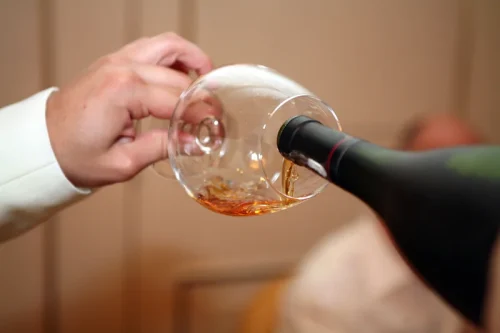
In fact, moderate drinking attributed to a 25 percent decrease in « all-cause mortality » and a 34 percent decreased risk of cardiovascular disease-related mortality in women. It may sound far-fetched, but drinking beer after work beer may just stave off heart disease. Drinking beer can cause inflammation of the pancreas, leading to a condition called pancreatitis.
Drinking after work is a common ritual

But, it’s worth noting that this study involved higher amounts of https://ecosoberhouse.com/ alcohol to replicate amounts athletes report while binge drinking. When a person consumes alcohol, their kidneys have to work harder to filter the blood and remove the alcohol from the body. This can cause changes in kidney function and affect their ability to regulate fluid and electrolytes in the body.
- Whether it’s a beer with colleagues or a glass of wine at a networking event, alcohol is often present in work-related socialising.
- Nevertheless, with a growing focus on health and sobriety, particularly among younger generations, the role of alcohol in the workplace is evolving, and companies are re-evaluating its place in professional settings.
- There’s no need to skip it altogether, just follow these tips and tricks for a successful evening.
- Specifically, soluble fibre prevents some dietary cholesterol from being broken down and absorbed by the body.
Why a Post-Workout Beer Could be Bad For You
Believe it or not, there are many non-alcoholic drinks that can mark the end of the day. There is nothing wrong with drinking one of these alternatives instead of alcohol. While they may not have the same impact, you’ll come to realize that you don’t need alcohol to cool down after work. Drinking after work can become a problematic situation if a person loses control. Although you could normally get a dose of vitamin B12 from dairy, eggs, and beef, your body is going to have a hard time absorbing them if you drink Substance abuse too much beer over an extended period of time.
- According to research by the American Society of Human Genetic (USA), barley in beer helps to reduce stress and anxiety, which are the main causes of premature ageing.
- As with all cases of life’s stresses, it’s important to manage them in a healthy way instead of resorting to drinking immediately.
- Alcoholism can cause a loss of appetite, making it difficult for individuals to consume a balanced diet and obtain the necessary nutrients.
- This is especially important for people who are at risk of kidney disease, as it can help prevent the condition from developing.
Stress from Outside Sources
Additionally, the pressure to participate in after-work drinks can be strong, and opting out may be challenging due to concerns about social and professional standing. Nevertheless, with a growing focus on health and sobriety, particularly among younger generations, the role of alcohol in the workplace is evolving, and companies are re-evaluating its place in professional settings. Today, many people across different industries drink after work, with some reporting that they feel the need for a beer to relax and destress.
The atmosphere of a bar or pub lends itself to socialising and getting to know your colleagues in a different context. It can be a great way to build connections and foster team spirit, and many people enjoy social drinking as a way to unwind. Whether you go for alcoholic or non-alcoholic beer—or water or milk or a sports drink—hydration is still key to exercise recovery. « If alcohol-free beer encourages people to rehydrate after a workout, then that’s a good thing, » says Schoenfeld. Even better, though, is to have beer with food or another non-alcoholic beverage, says Wynne.
- In Ancient Mesopotamia, beer was given out as rations to workers, establishing a cultural link between beer drinking and manual labour.
- Despite being good for heart health, beer can still raise your blood pressure.
- If you find yourself thinking about alcohol frequently or struggling to control your drinking, it may be time to re-evaluate your habits and consider seeking support.
- Additionally, grabbing a drink after work can open the door to situations that companies and employees want to steer clear of.
- In conclusion, beer contains soluble fibre, which offers health benefits such as reducing cholesterol and constipation.

Recognising this will help you realise that there are alternative, healthier ways to unwind. Data from alcohol harm charity Drinkaware found that almost two-thirds (64%) of UK drinkers intended to drink more alcohol over the festive season than they typically would at other times of the year. Besides it being a Friday night and one of your friends just organized a last-minute soiree, there aren’t many legitimate reasons why you should necessarily have a beer after a squat session. But some of your bros might try to cite certain studies that claim to legitimize booze after the gym, so let’s clarify some of those.


